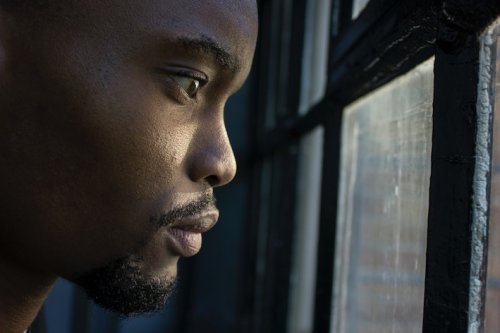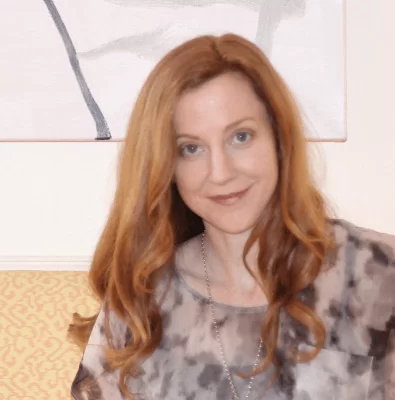Relationship Doubts – Real, or In Your Head?
Doubts in relationships can come from the relationship itself, signifying real red flags you need to pay attention to.

By: Betsssssy
Or they are coming from you. Your own issues are creating problems for you.
So which one is it? Are your relationship doubts real, or are you creating them?
Look at the following 12 questions to find your answer.
[Are your relationship doubts making you feel crazy? Need to talk to someone? Book an online counsellor today, be talking as soon as tomorrow.]
Is it actually the relationship?
Here are the questions you need to ask to know if your doubts are well-founded.
1.Is the relationship in any way, shape or form abusive?
“He just hit me once”, “yes, she’s really mean to me but she doesn’t mean it, she just can’t help herself”, “he controls my income but it’s fine, he’s better at money than me”…..
Whether it is physical abuse, emotional or verbal abuse, sexual abuse, psychological abuse, or the newly recognised economic abuse? Abuse is abuse.
Those doubts will be your inner self trying to help you escape a bad situation. And in this case, it’s time to listen.
2. Did you rush into the relationship?
We live in a world where we are inundated with false, even dangerous ideas of ‘love’. Why? Because these ideas are addictive and exciting and sell products and books.
But these ‘love imposters‘ can mean you spend all your time looking for perfection. Or you are addicted to a buzzy ‘love’ high that leads you further and further away from a healthy, functioning relationship.
If you are convinced it was ‘love at first sight’ and slept together the first night, or moved in together after a few weeks, and suddenly have doubts? With good reason. You probably don’t know the person you are dating. The chemical buzz of lust is wearing off and you are facing a near stranger.
3. Do you share values?
 Spend time understanding personal values and identifying yours. Then learn those of your partner.
Spend time understanding personal values and identifying yours. Then learn those of your partner.
The one thing that builds a solid relationship that lasts is shared values, not shared hobbies, taste in music, or lifestyle choices. If you don’t share values then your doubts are valid.
4. Is the relationship authentic?
Can you fully be yourself around the other person? Do you fully accept their real self?
If you feel you have to be what he or she ‘wants’ for the relationship to survive, or or constantly wish they’d change, then your doubts might be a red flag your relationship is false. An authentic relationship can’t be built on play acting.
5. Are you still communicating?
Been in the relationship for a long time, even have children, but suddenly have doubts? Paranoid he or she is not happy, or worse, cheating?
These sorts of doubts signify a breach in communication.
The more we have these doubts, the less we communicate, when communication is the thing that can heal.
If you feel totally unable to communicate, consider either personal coaching or couples therapy.
6. Are you growing in the same way?
If your doubts coincide with a life change you’ve made, then the doubts could be valid.
For a relationship to survive we need to be living out the same book, so to speak, if not be on the same page.
If you have decided to quit your job and donate your time to volunteering, and your partner, who met you when you shared the same dream of a wealthy lifestyle has not reached that same change of heart? Then it might be time to talk.
Are the doubts coming from you and your own issues?
The above questions don’t quite apply? Then maybe it’s you yourself the doubt is starting from. Here’s how to tell.

1.Do you doubt yourself?
Do you struggle to make decisions? Say one thing, then quickly correct and contradict yourself? If your life experiences have led you to doubt yourself, then it’s highly likely you will project that doubt onto those around you.
2. Do you actually trust anyone at all?
Be honest here. Think about your friendships and your relationships with colleagues. Do you question all their decisions, worry about what you told them in case they tell others, feel they are fake? Are you constantly moaning that “you just can’t trust anyone these days”?
Trust issues are from within, even if it’s easy to project them outwards. Yes, your lack of trust can inadvertently attract people you really can’t trust, but your own experiences have created this perspective.
3. Do you secretly think that the world is a dangerous place where bad things happen?
This is what is known as a negative ‘core belief’. Core beliefs are the assumptions we made as children we then mistake as fact. These beliefs then hang out in our unconscious mind and drive every decision we make.
Even when we don’t realise they are our beliefs at all, we make decisions to ‘prove’ our hidden beliefs right.
If you took the message on board as a child that the world is dangerous place? You’ll see danger everywhere, including in those around you. And, yes, you might even choose partners who are a little dangerous.
4. Do you feel fear in relationships?
You might have fear of intimacy, which leaves you plagued with endless relationship doubts. They serve as excuses for you to push the other person away, a slave to your fear.
5. Did you experience neglect or childhood trauma?
Why would any of the above apply to you? Why would you be walking around doubting yourself, unable to trust, and thinking the world is a dangerous place?
We aren’t born paranoid and scared. We learn these things from childhoods where we didn’t feel safe. It means we weren’t give an opportunity to develop proper attachement, and feel safe and loved just as we are.
. Do you have a personality disorder?
Sometimes we are paranoid of others because we see the world in a different way than to others, and have done since we were a teenager.
This is called having a personality disorder. It’s a lot rarer than the internet would have you believe. But the ones that can leave you always full of doubt include borderline personality disorder and paranoid personality disorder.
Is it time to face your inner doubts, or fix your relationship? Harley Therapy connects you with London’s top psychotherapists and couples counsellor. Not in London or the UK? Our booking site is UK-wide, or try an online therapist from anywhere in the world.
Still have a question about relationship doubts? Ask in the public comment space below.
 Andrea M. Darcy is a writer, author, and coach who often writes about relationships. Find her @am_darcy
Andrea M. Darcy is a writer, author, and coach who often writes about relationships. Find her @am_darcy




